The word ‘networking’ gets loosely thrown around at recruitment events, employment classes and professional business functions – which could lead to the view that everyone has become an expert in networking. But the actual truth is that there is an art to effective networking. It’s not just something that you should do, but a key skill set that all professionals should have in their repertoire.
A common misconception is that networking is all about calling or meeting with strangers when you need a job. We think it’s collecting lots of business cards, that truthfully, we do nothing with afterwards! In reality, most of us merely scratch the surface of networking.
By definition, a network is an extended group of people with similar interests or concerns who interact and remain in informal contact for mutual assistance or support. Many people use networking as a means to build a database that will add value to their business or service, or to try and find a way into a company for employment purposes. To gain the full benefit of networking there should be benefits or mutual assistance between both parties.
It’s a well known fact that we like to do business with who we know!
According to a study released by Connect Canada, “Networking, whether direct or indirect, was credited in providing over 61 per cent of new jobs and clients obtained of those surveyed. These results show that most organizations and educators are now including networking in their curriculum and their programming.” Further, according to the U.S. Bureau of Labor Statistics, “70 per cent of all jobs are found through networking.” This statistic takes into account the number of jobs that are available but never posted (internal hires), as well as positions filled by someone the employer knew. The Canadian job market is no different in this practice.
The key is to foster professional relationships that have mutual benefits for those involved in the network – even if you are in search of a new job or a new client base!
Are you networking effectively? Try this quiz and see where you are at!
| I have developed a brief introduction to clearly and concisely describe my professional interests and goals in 15 to 30 seconds that can be used in a casual setting, on the phone or to focus a conversation. |
Y / N
|
| I have a process for keeping my professional contacts database up to date including current contact information, last contacted, common topics of interest, areas of expertise, people referred and contact history. |
Y / N
|
| I have identified individuals I want to connect with regularly to keep them informed of my career development and others I will connect with occasionally. |
Y / N
|
| I have identified organizations and associations which are relevant to my career interests and have a plan for volunteering and attending a minimum number of functions this year. |
Y / N
|
| I have built an hour a week into my schedule to stay in contact with my network members.
|
Y / N
|
| I have a specific goal for each networking event such as the type of people I’d like to make contact with or the number of follow-up meetings I will finalize. |
Y / N
|
Too many nos? That’s the reality for most of us! Here are some tips for turning those nos to yeses.
Practical steps for effective networking
1) TYPES OF NETWORKING SITUATIONS:
Networking isn’t something that needs to take a lot of additional time. It can be done by phone, e-mail, online or in person. There are four broad types of professional networking.
- Informal Networking: Everyday interactions, community, volunteer and personal activities can be used for informal networking. This is the easiest way to begin a professional network. Develop a script describing your professional interests clearly and concisely and asking a clear question to open conversations on ‘professional’ topics with people you know.
- Formal Professional Activities/Events: In every field there are organizations, meetings, conferences, committees, events and trade shows. If you are a new member or not yet a member, volunteer to help out at such events. This provides opportunities to meet and talk to professionals of all stages working in multiple settings. A great place to start is getting in touch with the Mount Royal University Alumni Association.
- Arranged Networking Appointments: While much networking can be done through events, calls and e-mails, it is worthwhile to arrange occasional one-to-one face time to really connect. Be aware and considerate of busy times when arranging appointments, lunch or coffee.
- Social Media Networking: It is becoming increasingly valuable to develop and maintain a strong professional online and social media presence. Websites such as LinkedIn, including the Mount Royal University Alumni LinkedIn Group, provide great opportunities to grow your professional network. Each social media site has its own etiquette but when in doubt, use what would be your best professional in-person behavior as a guide. Remember, nothing is as personal as ‘face-to-face’ interaction. Be aware that information on social sites such as Facebook and Twitter may be seen by potential employers/colleagues. Ensure these reinforce your professional image rather than negate it.
2) HOW TO START NETWORKING
- Practice. Talk to friends, people you work with, club members or the person who regularly sits with you on the bus about what they do and what you enjoy doing right now. People in all businesses and those not recruiting have information, resources and contacts, too. Consider everyone as a valuable potential network member to explore.
- Make a list of people you already have a connection with: current/former co-workers, relatives, friends, neighbors, instructors and people from volunteer, community and religious activities. Identify five people from your current network you would like to consider as part of your professional network.
- Develop specific strategies to prioritize building ties and be a dependable resource. Monitor your activities and the growth of your professional contacts.
- You do not have to know exactly what you want to do to start to network. Seek information from friends of friends. This is easy and the most common way professionals network every day. Before calling, do some research on their company, position and questions you’d like answered to provide a solid starting point to put both you and your contact at ease.
- These are just a few examples. Don’t expect contacts to remember you or be part of your network if you only contact them once or twice. Occasionally relationships develop quickly; most take longer. To develop professionally rewarding relationships, build goodwill through multiple contacts.
3) LEVERAGING YOUR NETWORK IN A JOB SEARCH
Networks are important to people in positions of responsibility who don’t like to take risks when they do not have to. An unfamiliar worker can be a risk, so employers often hire people they have met through their professional networks. For job seekers, knowing about a group, department or organization ‘from the inside’ can help you identify hidden ‘unadvertised’ opportunities, and target positions that best align with your qualifications and experience.
- Let your established network contacts know you are looking for new opportunities and would appreciate leads or contacts. Update them on your search efforts.
- Make it easy to help. Ask for advice, suggestions, leads or industry feedback on your resume rather than if they know of jobs.
- Email a thank you and tell them about results from leads or suggestions they provided.
- If you are interested in a particular company or department, ask established contacts if they are able to provide you with an introduction.
- Ask contacts you have worked on projects with if they would serve as one of your references.
These steps are just a starting point! Below are some additional resources and information links.
- http://www.mtroyal.ca/cs/groups/public/documents/pdf/cs_networking_pdf.pdf
- http://www.helpguide.org/articles/work-career/job-networking-tips.htm
- http://www.connectuscanada.com/ebooks/canadian-networking-survey.pdf
For more information on effective online networking, check out our next post coming in July!
Blog content adapted by: David Babaganov, marketing assistant, and Patsy Valenzuela, Career Services.
Original content: Career Services Focus Tip Sheet: “Networking” written by Elaine Balych, career education/career development coordinator
Mount Royal Career Services offers services to graduates of Mount Royal University credit certificates, diplomas, bachelor degrees and applied degrees.


Leave a Reply